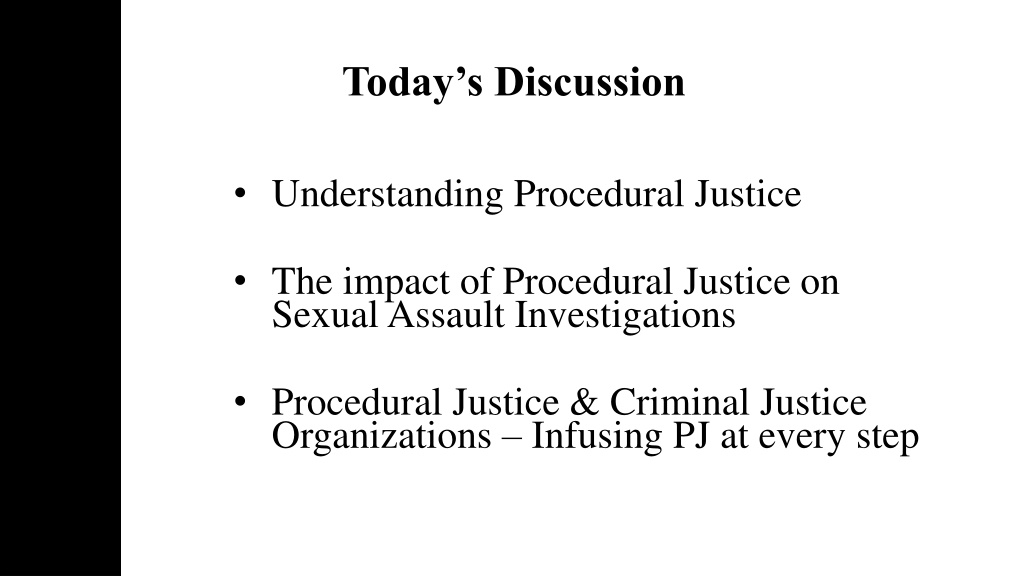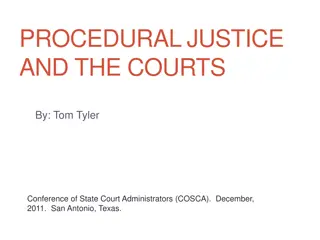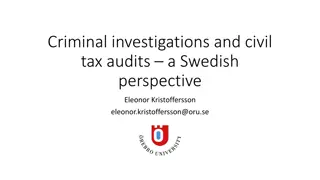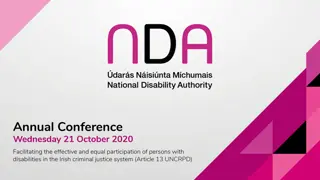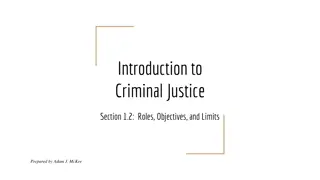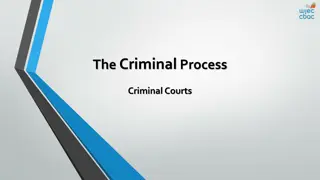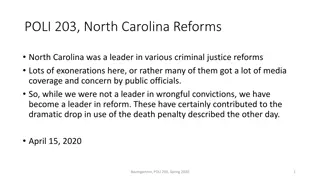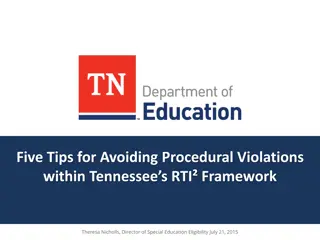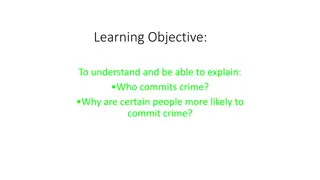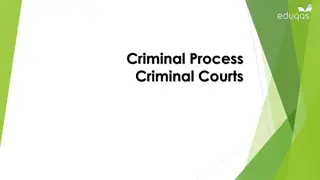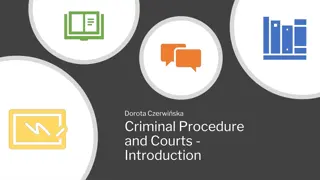Understanding Procedural Justice and Its Impact on Criminal Justice Organizations
Procedural justice emphasizes fairness, respect, and transparency in decision-making processes. This approach can lead to positive organizational changes, improved community relationships, and increased trust and legitimacy. The four pillars of procedural justice include fairness in rule application, voice and representation in the process, transparency, and impartial decision-making based on evidence.
Download Presentation

Please find below an Image/Link to download the presentation.
The content on the website is provided AS IS for your information and personal use only. It may not be sold, licensed, or shared on other websites without obtaining consent from the author. Download presentation by click this link. If you encounter any issues during the download, it is possible that the publisher has removed the file from their server.
E N D
Presentation Transcript
Todays Discussion Understanding Procedural Justice The impact of Procedural Justice on Sexual Assault Investigations Procedural Justice & Criminal Justice Organizations Infusing PJ at every step Trust and Legitimacy
Procedural Justice is the idea of fairness in the process of treating everyone with fairness and respect It is a concept that when embraced promotes positive organizational change, improved community interactions and bolsters good relations
Pillar One Fairness and Consistency of Rule Application 4
Pillar One Fairness and Consistency of Rule Application Perceptions of fairness are not only driven by outcomes (distributive justice) But influenced by the process used to reach those outcomes (procedural justice) 5
Pillar Two Voice and Representation in the Process 6
Pillar Two Voice and Representation in the process Being Heard Involve individuals in the decisions that affect them Listen/Hear 7
Pillar Three Transparency and Openness of Process 8
Pillar Three Transparency and Openness of Process Transparency in the processes by which decisions are made without secrecy or deception 9
Pillar Four Impartiality and Unbiased Decision Making 10
Pillar Four Impartiality and Unbiased Decision Making Decisions are based on relevant evidence or data 11
